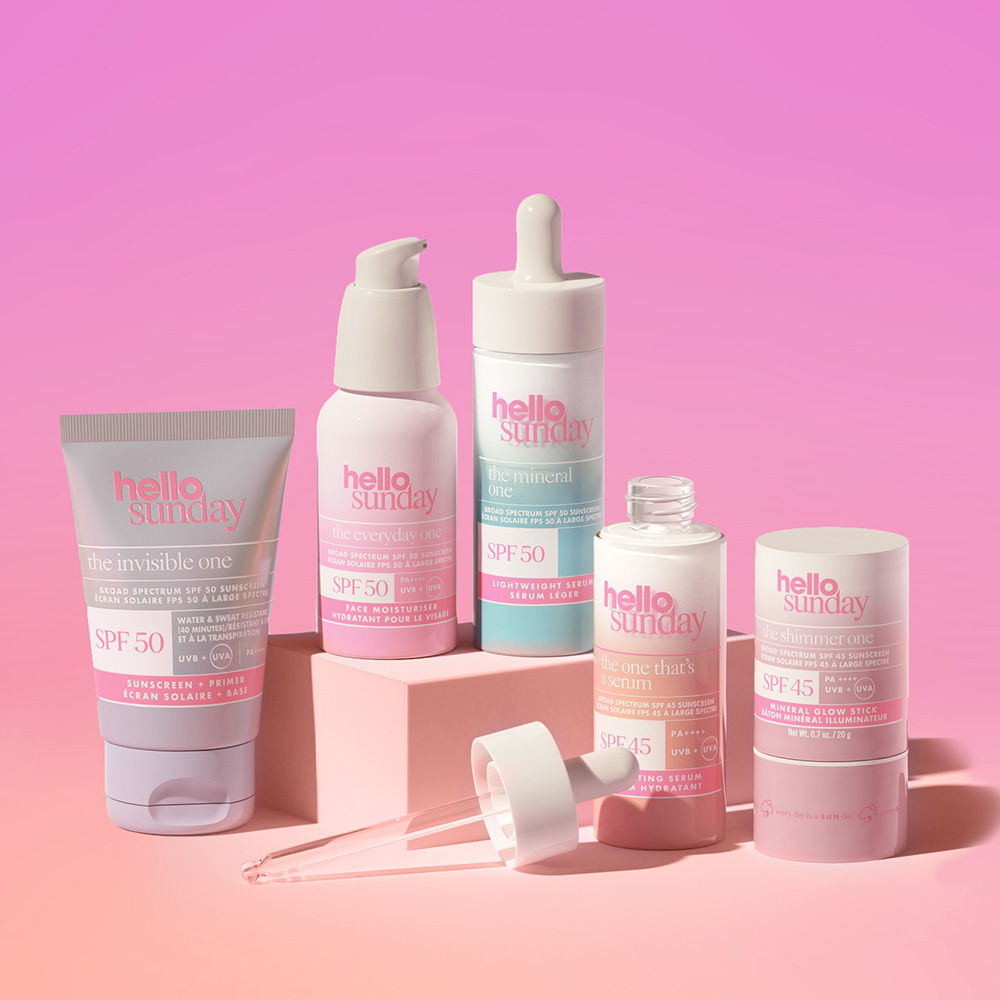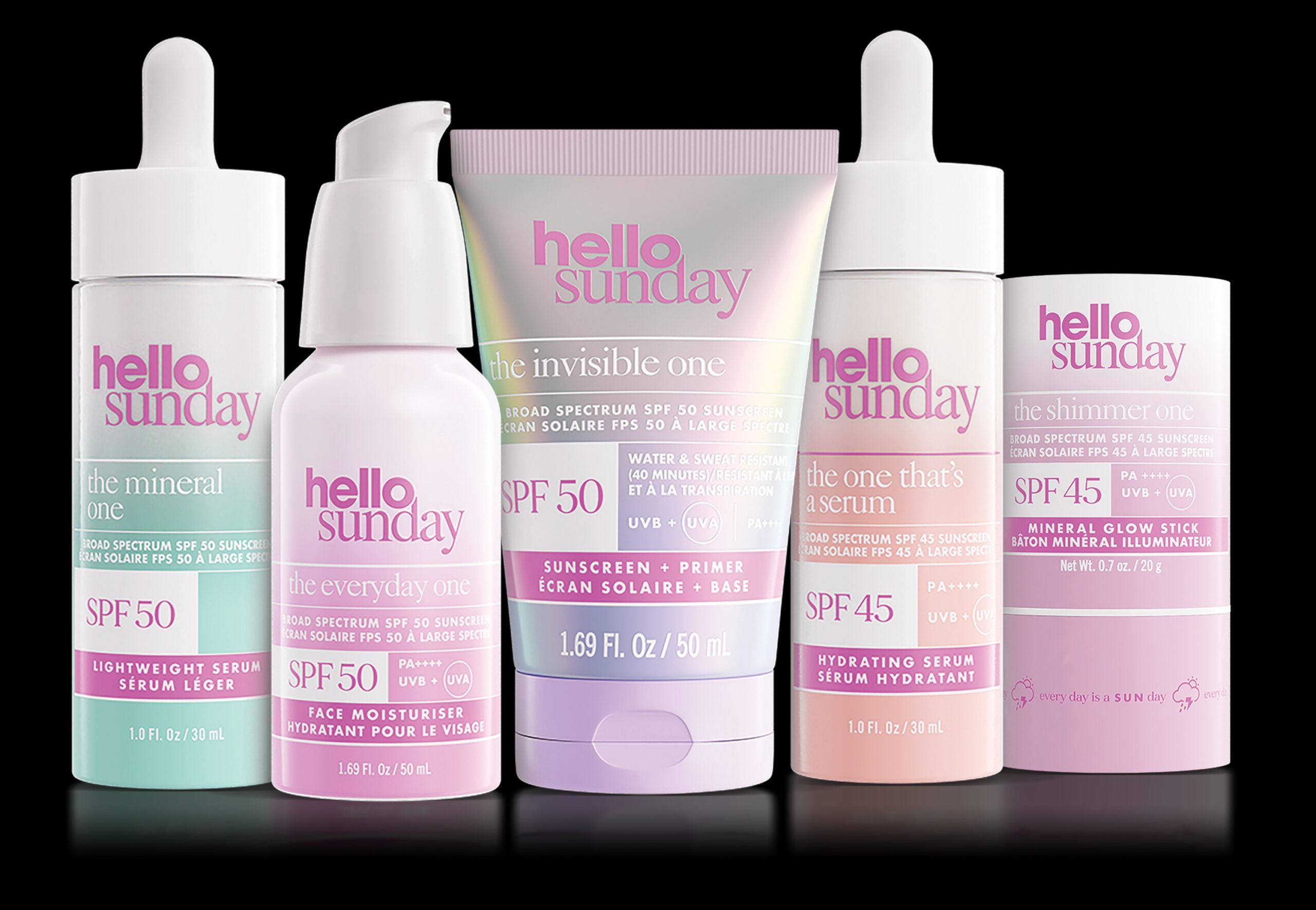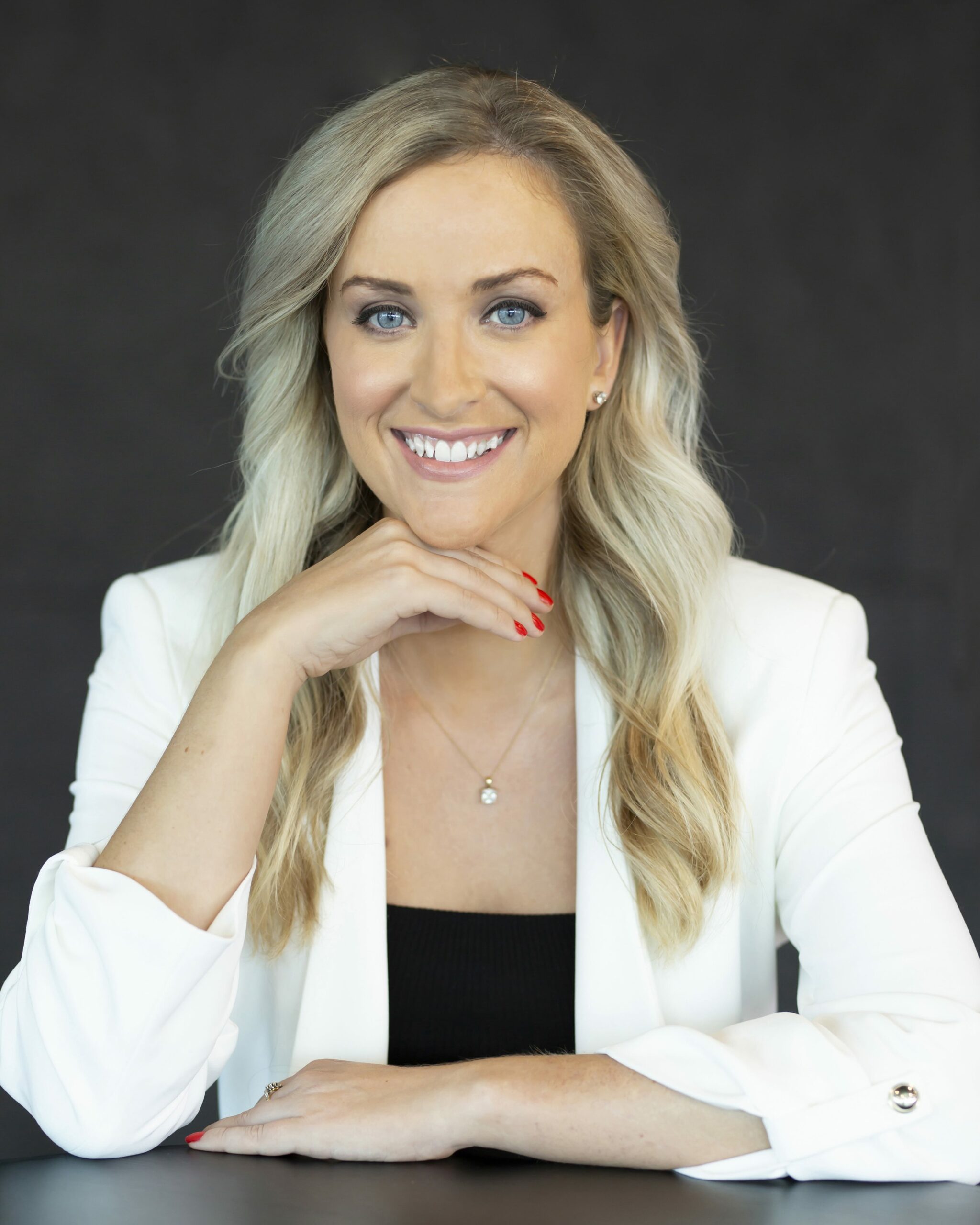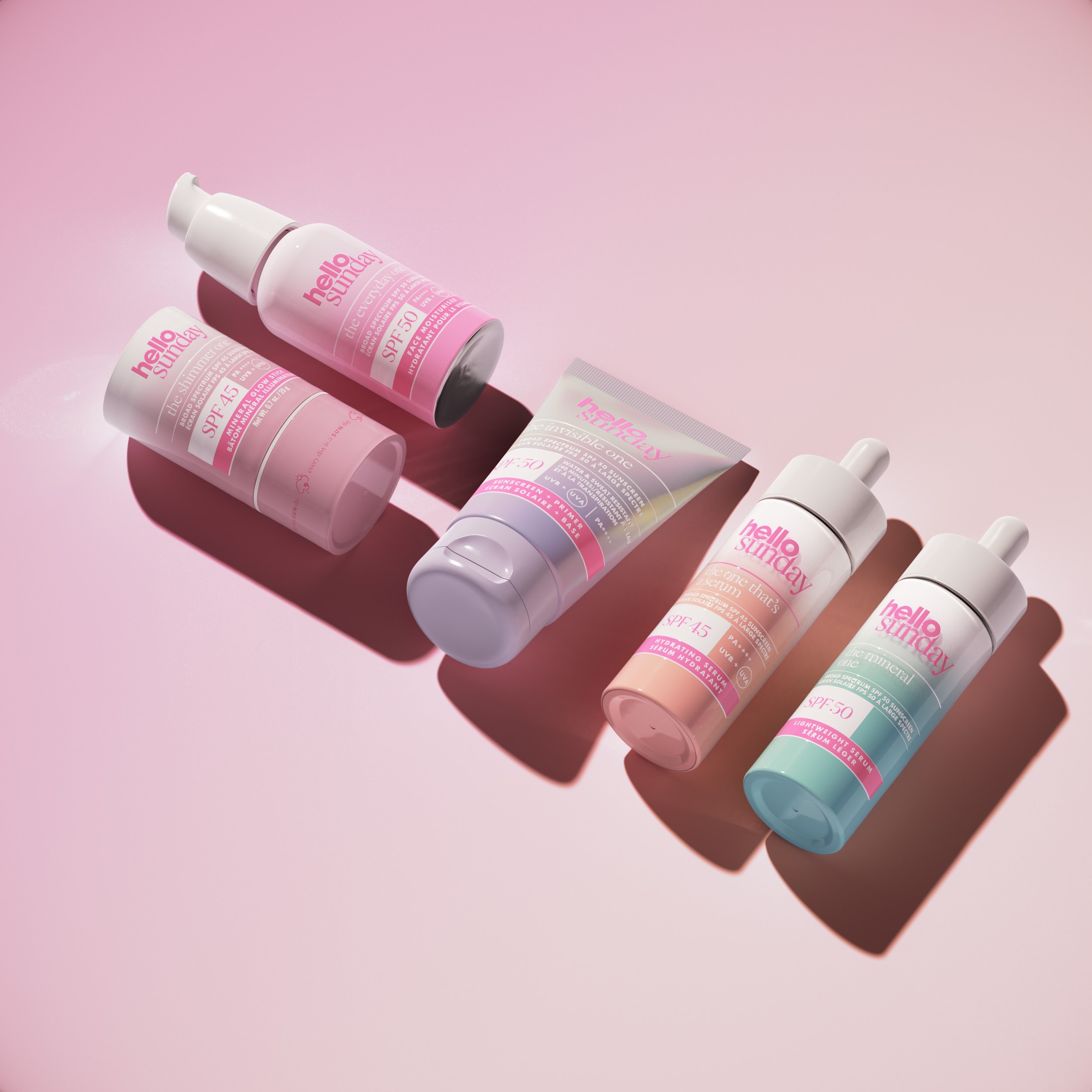
Sephora Says Hello To Masstige Sun Care With The Introduction Of Hello Sunday
Hello Sunday is saying hello to retail in the United States with a Sephora launch.
The London-based brand is bringing masstige positioning to the sun care category at the beauty specialty retailer to draw purchases from gen Z consumers who might be hesitant to pay Supergoop prices. Hello Sunday’s The Everyday One SPF 50 Face Moisturizer, its bestseller on a dollar basis, is $22 while Supergoop’s City Sunscreen Serum SPF 30 is $48.
On March 5, the brand will be live on Sephora’s website and in over 200 of its stores with five products: The Everyday One SPF 50 Face Moisturizer along with $25 The One That’s a Serum SPF 45, $28 The Mineral One SPF 50 Lightweight Serum, $22 The Shimmer One SPF 45 Mineral Glow Stick For Face & Body and $28 The Invisible One SPF 50 Hydrating Sunscreen + Primer. In late spring, its repertoire at Sephora will grow with $12 The One For Your Lips SPF 50 Clear Lip Balm. In Europe, Hello Sunday’s lip balm is its bestseller on a unit basis.

Hello Sunday founder Amy Ford points out accessibility both in terms of prices and product multifunctionality allowing beauty consumers to slim down their routines are central to the brand. “Sephora really liked that about us. They liked our motto that, ‘SPF is not a privilege,’” she says. “It’s really important that we, obviously still having the quality of the products, are available to as many people as possible.”
For its U.S. debut, Hello Sunday reformulated its products to adhere to regulatory standards set by the U.S. Food and Drug Administration and improve their suitability for all skin types, particularly oily skin. The products sold at Sephora feature the ultraviolet filters zinc oxide, octisalate, avobenzone, homosalate and octocrylene. The FDA has deemed zinc oxide and titanium dioxide to be safe, but is still in the process of determining if about a dozen other UV filters are safe. The U.S. has approved far fewer UV filters than Europe or Australia have approved for sunscreens.
“SPF is not a privilege.”
Ford, who’s spent her career largely in sales and marketing at beauty companies, initially came up with the idea for Hello Sunday after returning to the United Kingdom from Australia, where she held positions at L’Oréal and Heritage Brands and was exposed to Australians’ strong awareness and daily application of sun protection products. She felt she could work to replicate Australians’ regular sunscreen habits in her home country with inviting formulas and packaging. Bathed in orange, pink, green and lavender, Hello Sunday intentionally doesn’t appear similar to sporty, beachy sunscreen brands.
Launched in April 2021, Hello Sunday has primarily focused on building distribution in Europe to date. It’s amassed a long list of retailers such as Boots, Beauty Bay, Space NK, Cult Beauty, Zalando, Selfridges, John Lewis, Brown Thomas, Asos and Sephora U.K. Hello Sunday anticipates entering Sephora branches in various global regions to expand its distribution going forward.

Currently, 40% of Hello Sunday’s sales are from the U.K., and Europe accounts for the lion’s share of the remainder. Some 90% of its sales are from retail, but, in the 10% that’s from direct-to-consumer distribution, American consumers are responsible for half, demonstrating to Hello Sunday that there’s demand in the U.S. for what it’s selling. The brand was coy about its financials and funding. It disclosed its business increased a double-digit percentage from 2022 to 2023, but didn’t divulge exact sales, and it revealed it’s received external funding, but not the amount or who provided it.
Sun care remains a highly seasonal business, but emerging brands within it are pushing it to become less so, and Hello Sunday’s customer patterns are evidence of a trend in that direction. According to data from market research firm Mintel cited by Ford, 50% of Hello Sunday users wear its products all year long, a higher portion than rival brands. The brand’s core customers are aged 20 to 35 years old. “They want to trust that a brand is doing a good job, and they don’t want to spend huge amounts of money,” says Ford. “They’re really looking for those multifunctional products that will give them the best value and are still the latest and most innovative.”
“We’re not trying to do everything. We really want to own that SPF skincare hybrid space.”
To support its Sephora launch in the U.S., Hello Sunday has a comprehensive marketing and communications strategy encompassing traditional public relations, influencer partnerships and in-store events. In its marketing, Ford highlights the brand’s key message is, “happy, healthy skin starts with SPF.” She says, “There’s so much at the moment about especially younger customers going in and looking for very technical skincare products like $70 retinol creams that you don’t need, but what you do need is SPF, and the earlier that you can start the better. We talk to people about how easy it is because it’s skincare and sun care in one, so there’s no excuse not to be using it.”
To begin, Sephora is only taking a fraction of Hello Sundays’ 14 total products. Among the products the retailer isn’t carrying at the outset are $27 The Self Tan One Buildable Tanning Drops, $27 The Retouch One SPF 30 Invisible Face Mist and $26 The Take-Out One Invisible Sun Stick SPF 30. As it extends its assortment, Ford mentions on-the-go products like mists and products blurring makeup, skincare and sun care as probable additions.

Acknowledging that mists don’t tend to deliver the sun care that a traditional sunscreen can, Ford says, “When you’ve got your face full of makeup, it’s really sometimes impossible to be reapplying a moisturizer on your face. So, things like mist are great for something rather than nothing, but for sure you shouldn’t rely on them solely, and this is also why we haven’t got into tinted SPF because it’s not enough having some SPF coverage in your foundation.”
No matter the format of the future product, Ford emphasizes it will touch upon sun care. “We’re not trying to do everything,” she says. “We really want to own that SPF skincare hybrid space.”





Leave a Reply
You must be logged in to post a comment.